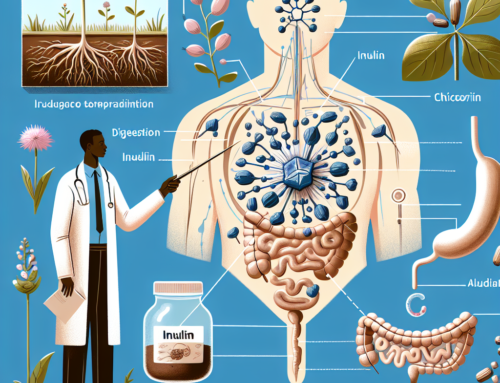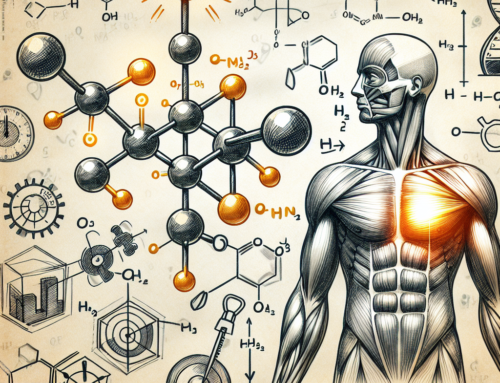“Unlocking the power of nature with Curcumin”
Anti-inflammatory properties of Curcumin
Curcumin, the active compound found in turmeric, has been used for centuries in traditional medicine for its various health benefits. One of the most well-known benefits of curcumin is its anti-inflammatory properties. Inflammation is a natural response by the body to protect itself from harm, but chronic inflammation can lead to various diseases such as heart disease, cancer, and diabetes. Curcumin has been shown to help reduce inflammation in the body, making it a promising natural remedy for inflammatory conditions.
Studies have shown that curcumin can inhibit the activity of inflammatory enzymes and reduce the production of inflammatory cytokines. This means that curcumin can help to decrease inflammation at a molecular level, which can have a positive impact on overall health. In fact, some studies have shown that curcumin can be as effective as anti-inflammatory drugs in reducing inflammation, without the negative side effects that often come with pharmaceuticals.
Curcumin has also been shown to help reduce pain associated with inflammation. By reducing inflammation in the body, curcumin can help to alleviate pain caused by conditions such as arthritis, fibromyalgia, and other inflammatory diseases. This makes curcumin a natural alternative to pain medications, which can have harmful side effects when used long-term.
In addition to its anti-inflammatory properties, curcumin has also been shown to have antioxidant effects. Antioxidants are compounds that help to protect the body from damage caused by free radicals, which are unstable molecules that can cause oxidative stress and damage to cells. Curcumin has been shown to neutralize free radicals and reduce oxidative stress, which can help to prevent chronic diseases such as cancer and heart disease.
Furthermore, curcumin has been shown to have neuroprotective effects. Studies have shown that curcumin can help to protect the brain from damage caused by inflammation and oxidative stress, which can help to prevent neurodegenerative diseases such as Alzheimer’s and Parkinson’s. Curcumin has also been shown to improve cognitive function and memory, making it a promising natural remedy for brain health.
Overall, the science behind the benefits of curcumin is promising. Its anti-inflammatory, antioxidant, and neuroprotective properties make it a powerful natural remedy for a wide range of health conditions. While more research is needed to fully understand the mechanisms of action of curcumin, the evidence so far suggests that it can be a valuable addition to a healthy lifestyle. Whether taken as a supplement or consumed in the form of turmeric, curcumin has the potential to improve overall health and well-being.
Antioxidant effects of Curcumin
Curcumin, the active compound found in turmeric, has been gaining popularity in recent years for its numerous health benefits. One of the key reasons for its popularity is its powerful antioxidant properties. Antioxidants are compounds that help protect the body from damage caused by free radicals, which are unstable molecules that can cause oxidative stress and lead to various diseases.
Curcumin is known to be a potent antioxidant that can neutralize free radicals and prevent oxidative damage to cells and tissues. This is important because oxidative stress has been linked to a wide range of health issues, including inflammation, heart disease, cancer, and neurodegenerative diseases like Alzheimer’s and Parkinson’s.
Studies have shown that curcumin can help increase the activity of antioxidant enzymes in the body, such as superoxide dismutase and catalase, which play a crucial role in neutralizing free radicals and reducing oxidative stress. By boosting the body’s antioxidant defenses, curcumin can help protect against chronic diseases and promote overall health and well-being.
In addition to its direct antioxidant effects, curcumin also has anti-inflammatory properties that can further enhance its protective benefits. Chronic inflammation is a key driver of many diseases, and curcumin has been shown to help reduce inflammation by inhibiting the activity of inflammatory enzymes and cytokines.
By reducing inflammation and oxidative stress, curcumin can help lower the risk of developing chronic conditions like heart disease, diabetes, and cancer. It can also help alleviate symptoms of inflammatory conditions such as arthritis and inflammatory bowel disease.
Furthermore, curcumin has been found to have neuroprotective effects, which may help prevent or slow down the progression of neurodegenerative diseases. Studies have shown that curcumin can cross the blood-brain barrier and accumulate in the brain, where it can help protect neurons from damage and reduce inflammation in the central nervous system.
Overall, the antioxidant effects of curcumin make it a valuable supplement for promoting overall health and well-being. By neutralizing free radicals, reducing inflammation, and protecting against oxidative stress, curcumin can help lower the risk of chronic diseases and support optimal health.
It is important to note that while curcumin has shown promising results in numerous studies, more research is needed to fully understand its mechanisms of action and potential benefits. Additionally, the bioavailability of curcumin can be limited, so it is important to choose a high-quality supplement or consume turmeric with black pepper, which can enhance its absorption.
In conclusion, the science behind the antioxidant effects of curcumin is compelling and suggests that this powerful compound can play a valuable role in promoting health and preventing disease. Incorporating curcumin into your daily routine through supplements or dietary sources like turmeric can help support your body’s natural defenses and protect against the damaging effects of free radicals.
Potential role of Curcumin in cancer prevention and treatment
Curcumin, the active compound found in turmeric, has been gaining attention in the scientific community for its potential health benefits. One area of interest is its potential role in cancer prevention and treatment. Studies have shown that curcumin possesses anti-inflammatory, antioxidant, and anti-cancer properties that may help in the fight against cancer.
Inflammation is a key factor in the development and progression of cancer. Curcumin has been found to inhibit the activity of inflammatory enzymes and reduce the production of inflammatory molecules in the body. By doing so, curcumin may help to prevent the chronic inflammation that can contribute to the development of cancer.
Furthermore, curcumin is a potent antioxidant that can help to neutralize harmful free radicals in the body. Free radicals are unstable molecules that can damage cells and DNA, leading to mutations that can contribute to cancer development. By scavenging free radicals, curcumin may help to protect cells from oxidative damage and reduce the risk of cancer.
In addition to its anti-inflammatory and antioxidant properties, curcumin has also been found to have anti-cancer effects. Studies have shown that curcumin can inhibit the growth and spread of cancer cells, induce apoptosis (cell death) in cancer cells, and prevent the formation of new blood vessels that tumors need to grow. These mechanisms make curcumin a promising candidate for cancer prevention and treatment.
One of the most well-studied cancers in relation to curcumin is colorectal cancer. Research has shown that curcumin can inhibit the growth of colorectal cancer cells and reduce the formation of polyps in the colon, which are precursors to cancer. In addition, curcumin has been found to enhance the effectiveness of chemotherapy and radiation therapy in colorectal cancer patients, suggesting that it may have a role in improving treatment outcomes.
Curcumin has also shown promise in the treatment of other types of cancer, including breast, lung, prostate, and pancreatic cancer. Studies have demonstrated that curcumin can inhibit the growth of cancer cells, induce apoptosis, and enhance the effectiveness of conventional cancer treatments. While more research is needed to fully understand the mechanisms by which curcumin exerts its anti-cancer effects, the evidence so far is promising.
It is important to note that while curcumin shows potential as a cancer-fighting agent, it is not a cure for cancer. More research is needed to determine the optimal dose, formulation, and delivery method of curcumin for cancer prevention and treatment. In addition, curcumin may interact with certain medications and should be used with caution in patients undergoing cancer treatment.
In conclusion, the science behind the benefits of curcumin in cancer prevention and treatment is promising. Its anti-inflammatory, antioxidant, and anti-cancer properties make it a potential ally in the fight against cancer. While more research is needed to fully understand its mechanisms of action and determine its clinical utility, curcumin holds great potential as a natural compound that may help to prevent and treat cancer.
About Puriva Nutrition
Puriva formulates personalized, ready-to-eat nutritional products and sells at wholesale pricing, direct to consumers, in our retail location. The products include 2-ounce shots and more than 100 bulk powders including whey protein isolate, collagen peptides, creatine monohydrate, stevia rebaudioside-M, chicory inulin, phytonutrient powder, fruit powders, curcumin, ashwagandha, saffron, HMB, alpha GPC (alpha-glycerophosphocholine), beta-alanine, every essential amino acid, MSM, chondroitin sulfate, citric acid, CoQ10, HMB (hydroxy- methyl-butyrate), magnesium, calcium, potassium, piperine, ginger root, bacopa extract (50% bacosides), boswellia serrata, green tea extract, lemon balm extract, all essential vitamins, citrulline, beet powder, carrot powder, celery powder, and pre-workout powder.






